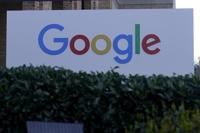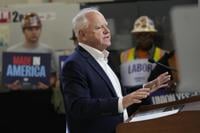LONDON (AP) — More than 150 executives are urging the European Union to rethink the world's most comprehensive rules for artificial intelligence, saying Friday that upcoming regulations will make it harder for companies in Europe to compete with rivals overseas, especially when it comes to the technology behind systems like ChatGPT.
Officials at companies from French planemaker Airbus and carmaker Renault to Dutch beer giant Heineken signed an open letter to EU leaders saying the may put shackles on the development of generative AI. That technology gives popular AI chatbots like ChatGPT the power to generate text, images, video and audio that resemble human work.
“Such regulation could lead to highly innovative companies " and investors withdrawing their money from AI development in Europe, the letter said. “The result would be a critical productivity gap between the two sides of the Atlantic.”
The executives say laws requiring "rigid compliance" would be ineffective when so little is still known about the risks and uses of generative AI. They urged the EU to revise the AI Act to focus broadly on the risks.
With growing on all parts of life, the letter does acknowledge “a clear need to properly train these models and ensure their safe use.”
The corporate leaders called for a regulatory body of experts that can regularly adapt rules to new developments and respond to risks that emerge. They also pointed to the .
It's the latest letter to , which has dazzled users but raised concerns about data privacy, copyright infringement and disinformation. That has sent governments worldwide racing to rein in the technology.
There are also fears about more existential threats to humankind, which scientists and tech industry leaders, including high-level executives at Microsoft and Google, warned about last month.
Sam Altman, CEO of ChatGPT maker OpenAI, and , a computer scientist known as the , were among the hundreds of leading figures who signed that statement.
Missing was Yann LeCun, chief AI scientist of Meta and another AI pioneer, who signed the letter Friday from European executives.
The EU is still putting the finishing touches on its AI Act, and the rules are not expected to take effect for two years.
“I am convinced they have not read the text but have rather reacted on the stimulus of a few," Dragos Tudorache, a Romanian member of the European Parliament who is co-leading the measure, said of the executives who signed the letter.
He noted that the letter's “only concrete suggestions” are already part of the legislation, including “an industry-led process for defining standards, governance with industry at the table and a light regulatory regime that asks for transparency.”








































